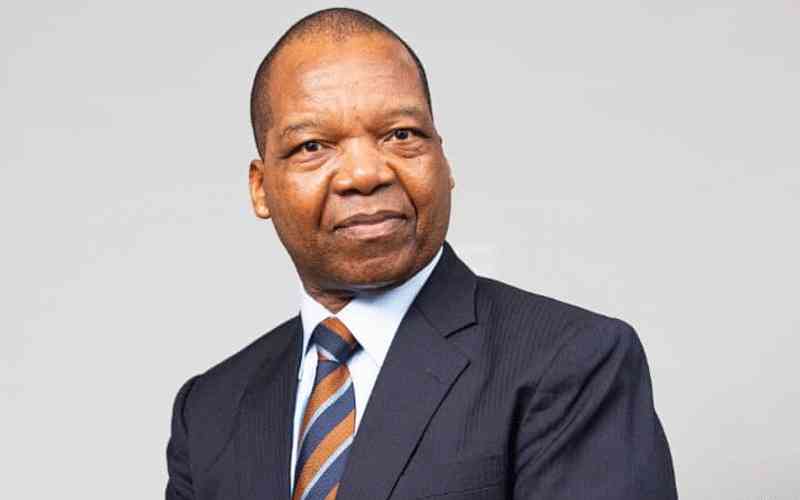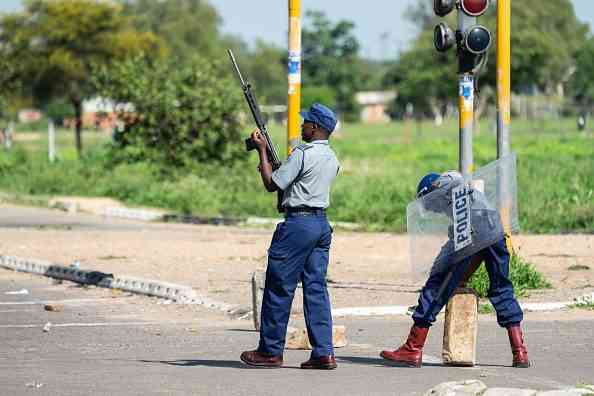
OUR assistant editor, Mthandazo Nyoni, had an exclusive interview with Mutapa Investment Fund (MIF) chief executive officer John Mangudya (JM, pictured) during Afreximbank’s annual meetings in Nigeria recently. In the interview, Mangudya discusses the US$455 million deal between Zimbabwe Power Company and Jindal Africa for rehabilitating Hwange Thermal Power Station’s Units 1 to 6. He also touches on the restructuring of Zesa Holdings to improve efficiency under a single board. Below is their conversation:
MN: Can you give us an update on the Zimbabwe Power Company (ZPC) and Jindal Africa deal?
JM: As we speak, negotiations on the concession agreement are being finalised. Everything there is on board, it is on track, and we expect the finalisation of that concession agreement this July, if all things go well, so that we can start working on the project. What we need is to increase power from Hwange using coal so that we can boost economic growth, support industry and farming. By doing so, we are also minimising imports. When power supply has improved, imports will be minimised.
MN: What are the terms of the deal?
JM: The good thing in the concession agreement with Jindal is basically more like a private-public partnership. There is a partnership. It is also more like an independent power producing project because Jindal is bringing US$455 million to rehabilitate the plant, operate it, then transfer it to us within 15 years. This means they use their own funds. The funds will be recovered from the sale of electricity.
MN: So, there is no borrowing?
JM: Yes, there is no borrowing. They will then recover their investment from the electricity they will be selling. They need these 15 years to ensure that they recover their money. At the same time, they also assure us of royalties that go back to Zesa and ZPC for usage of that plant. So far, we are all happy. Apart from increasing electricity supply, we are also seeing that it is a non-external debt creating transaction. It is a win-win situation. We need to ensure that electricity consumers pay, so that funds are available to recover the investor's investment.
MN: What is the role of Zesa in the deal?
- Mavhunga puts DeMbare into Chibuku quarterfinals
- Bulls to charge into Zimbabwe gold stocks
- Ndiraya concerned as goals dry up
- Letters: How solar power is transforming African farms
Keep Reading
JM: On our part as Zesa and ZPC, we need to ensure that prepaid and smart meters are in place to ensure collections. Whoever consumes electricity gets their bill and pays for it.
Prepaid meters are very critical to ensure people pay. With post-paid meters, people don't pay on time. The utility should not suffer from debtors. That is where we are. Everything is under control. It will be done on a scalable basis and we expect this to be completed within the next 18 months.
MN: Could you share an update on the Zesa Holdings rebundling?
JM: The whole idea is to consolidate the utility. It will save on resources. It will make sure ZPC, Zimbabwe Electricity Transmission and Distribution Company (ZETDC), and the other units are under one board, one management span. The units will become divisions. We are rebundling them to form one company with divisions. There will be a division of distribution, a division of electricity production. This way, you have easier decision-making, remove duplications, and maximise expectations within the group. Financially, it becomes easier to manage the entity. This is an ongoing process. The legal teams of Zesa and Mutapa are working on the whole process.
MN: Why is it a process?
JM: There are commitments such as foreign commitments, loans, and agreements between these units and third parties. For example, ZETDC works with Afreximbank — they have a loan there. ZPC has agreements with China for Units 7 & 8. This process needs to be done properly. We don't want to do things haphazardly. It is a sequential process that doesn't undermine the covenants and agreements with ZETDC and other investors.
The legal due diligence will consider all this. In the next two months, we will complete the process.
MN: Let us talk about the National Railways of Zimbabwe (NRZ).
JM: NRZ has various memorandum of understandings with suppliers of locomotives and wagons. These MOUs require financing.
We have suppliers of wagons and locomotives, and all these suppliers require funding. So, you are looking at the MOUs for the equipment suppliers and agreements we are pursuing for financing. Institutions such as Afreximbank want suppliers of equipment — they are financiers of the equipment.
What must be done first is to ensure a feasibility study is conducted to confirm that each of these MOUs align with what we want to achieve. Sometimes, you can’t just go to a bank and say, "Give me money to buy a locomotive."
NRZ is financing feasibility studies to determine how they will repay the money if they secure funding from a bank.
MN: As a shareholder, what else have you done for NRZ?
JN: In the interim, we have taken steps to ensure operations continue. We are assisting NRZ by categorising our support into short-term, medium-term, and long-term strategies.
In the short term, we want NRZ to remain operational. This means securing funding to help them repay freight costs, fund wagon repairs in their workshops, and lease locomotives while repaying for their own locomotives to keep the business running. Once we have proof that the concept works, it becomes easier to transition to the medium term strategy, where we can import fewer locomotives, make improvements, and eventually move to the long term phase of full leasing.
MN: Why is this important?
JM: We want to minimise what we call large scale scenarios where you have all new equipment, such as locomotives, without sufficient business. Instead, we want to implement scalable processes. The short-term goal is to keep NRZ operational and improve efficiency by repairing existing assets, maintaining what is already there, and leasing some locomotives only when necessary to keep the rail operations moving.
MN: So, how much are we looking at in the interim?
JM: For example, repairing wagons requires just under a million — to fix wagons in the workshops. To repair the locomotives, you need around US$3 million to US$5 million, and to hire locomotives, you might need a certain amount — maybe US$200 000 to US$300 000 per month. All in all, if you start with an amount of around US$7 million to US$10 million, you will be able to get NRZ operating by repairing the wagons, fixing the locomotives, leasing some of them, and increasing the company’s revenue while also boosting its freight capacity.
At least now you know there is a proof of concept, and then you can upscale. That is the shareholder's perspective.
MN: As Mutapa Investment Fund, what are your major goals?
JM: We want to make the economy tick. We want to ensure that we upscale the way we do business, we want to make sure the entities under Mutapa are commercially viable. We want to make sure they don't depend on the fiscus. We want to reduce fiscal risk by ensuring they work and leverage the balance sheet. Some of the companies are profit making, others are not. We want to leverage that balance sheet. If we obtain funding from this, we can then spread it to the whole group. We need to cross-fertilise these entities so they are and we can talk about equitable distribution of resources. That will help Zimbabwe's economy grow.
It also means all those companies become commercially viable and pay dividends to Mutapa.
All the dividends then go to the Government of Zimbabwe. We want to make money. Our sole purpose is to ensure that companies are commercially viable, and we maintain production for Zimbabwe, job creation and more.
MN: How many people does the group employ now?
JM: The group employs more than 24 000 people. We want to ensure that jobs are secured and that job security is maintained by those companies. If they continue to produce, they will increase employment and their contribution to GDP.
MN: What is your current contribution to the country’s GDP?
JM: Currently, it is around 7% to 8% for companies under Mutapa. Our target is to increase that contribution to about 20% within the next five years. That is our goal. But that vision can only be realised by working hard to exploit what God has given us: our minerals. Our lithium, our gold, our coal need to be exploited, and we need to increase beneficiation across all sectors. We want Mutapa to be a resilient entity that boosts Zimbabwe's GDP, increases Zimbabwe's foreign currency reserves, enhances support for the fiscus, and creates a strong base for the country's reserves.
MN: When will we see results?
JM: We have started seeing the results coming in. We spoke about the rebundling of Zesa, about NRZ, and what we are doing for Air Zimbabwe.
We have facilities that we have negotiated with foreign financiers to ensure that the companies have capital coming in.
I spend most of my time thinking about how we can improve Zimbabwe's economic situation.
I see that there are plenty of opportunities in Zimbabwe through these ventures. We owe it to ourselves to be energetic when doing what's right to move forward. God gave us only one life, and with this tenure of life we need to make a difference — a better — to improve our people's welfare. With our sphere of influence in Mutapa, these entities should become more sustainable.






